Bahrain, a small island nation in the Arabian Gulf, is making significant strides towards promoting sustainable living through green building practices. With its commitment to environmentally friendly development, Bahrain is becoming a model for other countries in the region.
Green building is the practice of designing and constructing buildings that are energy-efficient, environmentally responsible, and promote the well-being of its occupants. By incorporating sustainable design principles, such as using renewable materials, conserving energy and water, and reducing waste, green buildings aim to minimize their impact on the environment.
One of Bahrain’s notable green building initiatives is the Bahrain World Trade Center (BWTC), a landmark skyscraper that stands as a testament to the country’s commitment to sustainability. The BWTC incorporates wind turbines within its structure, harnessing the power of the wind to generate clean energy. This innovative design element has made the BWTC the world’s first skyscraper to incorporate wind turbines.
Another prominent example of green building in Bahrain is the Bahrain Bay Development. This ambitious waterfront project aims to create a sustainable urban community by integrating green spaces, pedestrian-friendly infrastructure, and energy-efficient buildings. The development’s master plan includes the use of solar panels, rainwater harvesting systems, and innovative waste management practices to reduce its environmental impact.
To support the growth of green building in Bahrain, several organizations have been established to promote sustainable practices and provide guidance to developers and architects. One such organization is the Bahrain Green Building Council (BGBC). The BGBC works to raise awareness about green building principles, offers training and certification programs, and advocates for sustainable policies at the national level.
In addition to these large-scale projects and organizations, Bahrain has also implemented various policies and regulations to encourage sustainable building practices. The government has introduced the Estidama Sustainable Building Rating System, which provides guidelines and standards for developers to follow in order to achieve green building certification. This rating system evaluates various aspects of a building’s design, construction, and operation, such as energy efficiency, water conservation, indoor environmental quality, and waste management.
Moreover, Bahrain has invested in research and development to further advance green building technologies and methods. The country has established partnerships with international institutions and experts to exchange knowledge and expertise in sustainable design and construction. This collaborative approach has not only benefited Bahrain but has also contributed to the global green building movement.
For residents and businesses interested in adopting sustainable practices, Bahrain offers a range of incentives and support. The government provides financial incentives for owners of green buildings, such as reduced utility rates and tax benefits. Additionally, training programs and workshops are available to educate individuals and professionals about the benefits and techniques of green building.
Living in a green building not only benefits the environment but also enhances the quality of life for its occupants. Green buildings are designed to maximize natural light, improve air quality, and promote a sense of well-being. By choosing to live or work in a green building, individuals can contribute to a more sustainable future while enjoying improved comfort and productivity.
Key Takeaways
- Bahrain is a model for sustainable living through green building practices in the region
- Green buildings minimize their impact on the environment through sustainable design principles
- Bahrain’s notable green building initiatives include the BWTC and Bahrain Bay Development
- The BGBC and government policies promote and support sustainable practices and green building
- Bahrain invests in research and development for green building technologies and incentivizes owners and occupants of green buildings
Understanding Green Building in Bahrain
Green building is the practice of designing and constructing buildings that are energy-efficient, environmentally responsible, and promote the well-being of its occupants. In Bahrain, green building principles are becoming increasingly popular, with a growing number of developers and architects incorporating sustainable design practices into their projects.
One of the key strategies for achieving energy-efficient buildings in Bahrain is the use of green building materials. These materials, such as recycled steel, bamboo, or sustainably sourced wood, have a lower carbon footprint than traditional building materials. They also promote better indoor air quality and reduce the release of harmful toxins into the environment.
Green building solutions in Bahrain also focus on reducing energy consumption through passive design features. Passive design features include things like shading devices, natural ventilation systems, and the orientation of buildings to maximize sunlight and minimize heat gain. By harnessing natural resources, passive design features can significantly reduce the need for artificial lighting, heating, and cooling.
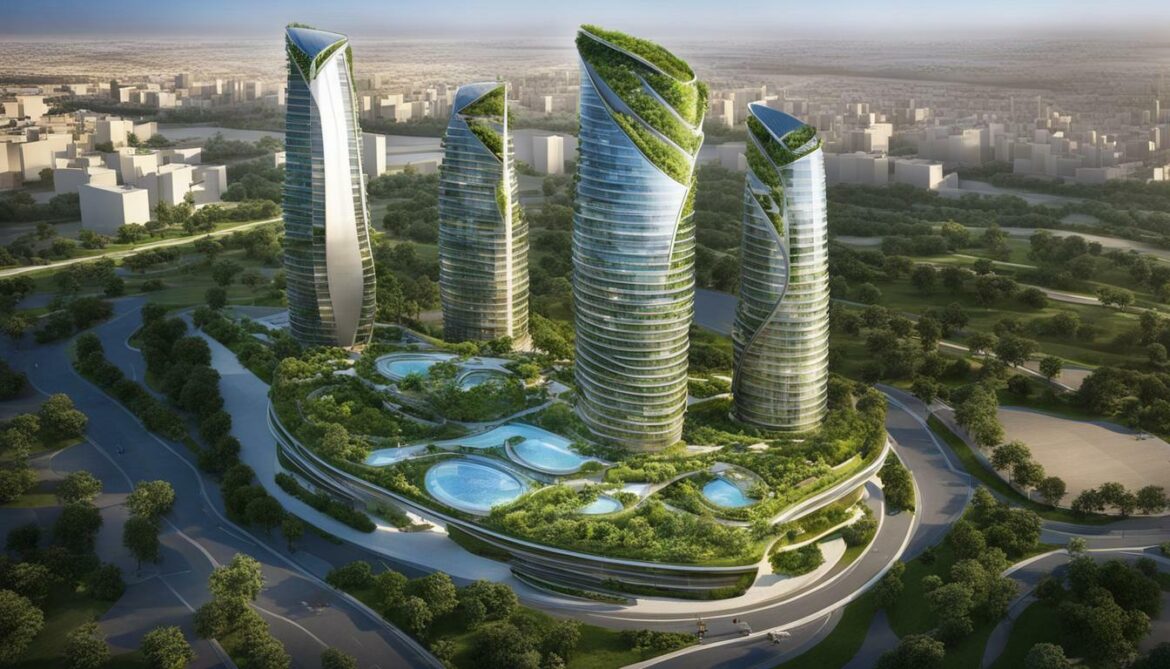
Energy-efficient buildings in Bahrain also incorporate active design features, such as solar panels, wind turbines, and geothermal systems, to generate clean energy and reduce reliance on non-renewable sources. Bahrain’s hot and sunny climate makes it an ideal location for solar power, and many green buildings in the country use photovoltaic cells to generate electricity.
In addition to reducing energy consumption, green building in Bahrain also aims to conserve water resources. This is achieved through the use of rainwater harvesting systems, low-flow fixtures, and innovative landscaping techniques that reduce the need for irrigation.
Overall, green building in Bahrain is focused on creating buildings that are not only environmentally responsible but also promote the health and well-being of its occupants. By incorporating sustainable design principles, energy-efficient systems, and innovative solutions, green buildings in Bahrain are setting a new standard for sustainable development in the region.
Prominent Green Building Projects in Bahrain
One of Bahrain’s notable green building initiatives is the Bahrain World Trade Center (BWTC), a landmark skyscraper that stands as a testament to the country’s commitment to sustainability. The BWTC incorporates wind turbines within its structure, harnessing the power of the wind to generate clean energy. This innovative design element has made the BWTC the world’s first skyscraper to incorporate wind turbines.
Another prominent example of green building in Bahrain is the Bahrain Bay Development. This ambitious waterfront project aims to create a sustainable urban community by integrating green spaces, pedestrian-friendly infrastructure, and energy-efficient buildings. The development’s master plan includes the use of solar panels, rainwater harvesting systems, and innovative waste management practices to reduce its environmental impact.
Bahrain hosts a number of green building companies, including Al Zayani Investments, which has developed numerous sustainable projects. The company’s flagship project, the Beach Bay residential development, is composed of 50 eco-friendly villas that are built to the highest environmental standards.
Additionally, sustainable development is a key focus in the refurbishment of traditional buildings in Bahrain. The Muharraq district, which is considered the country’s cultural capital, has recently undergone restoration works that prioritized energy-efficient and sustainable design principles. This approach aims to preserve the district’s cultural heritage, while also minimizing its impact on the environment.
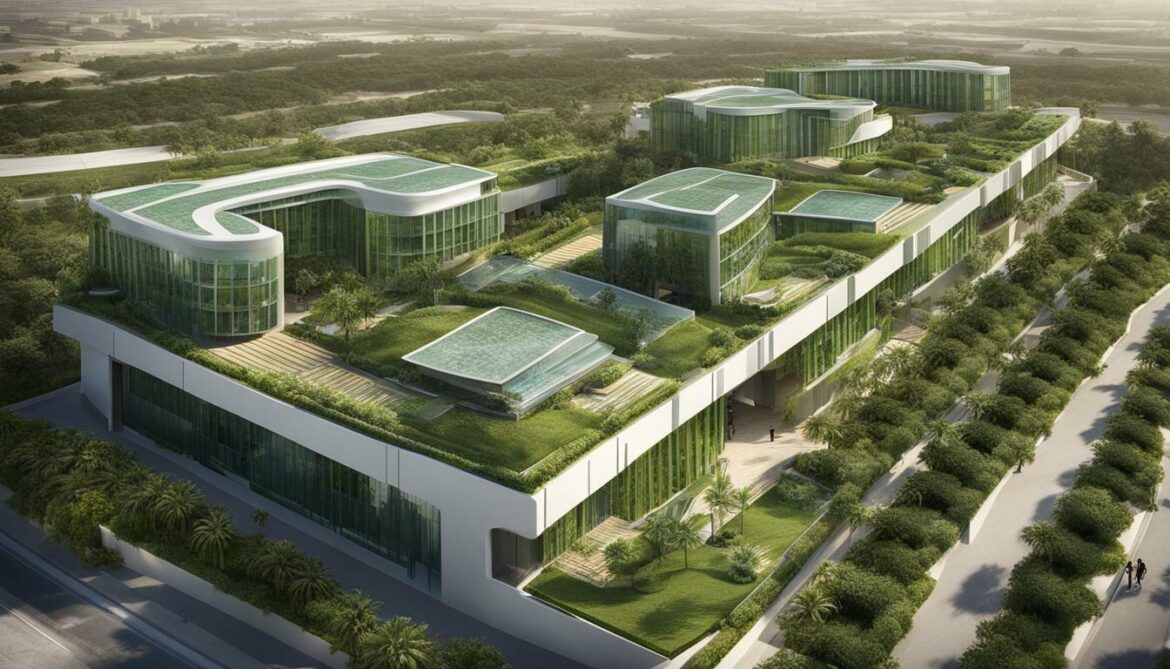
Supporting Organizations and Policies for Green Building in Bahrain
To support the growth of green building in Bahrain, several organizations have been established to promote sustainable practices and provide guidance to developers and architects. One such organization is the Bahrain Green Building Council (BGBC). The BGBC works to raise awareness about green building principles, offers training and certification programs, and advocates for sustainable policies at the national level.
In addition to the BGBC, the government of Bahrain has introduced several policies and regulations that support sustainable building practices. The Estidama Sustainable Building Rating System provides guidelines and standards for developers to follow in order to achieve green building certification. This rating system evaluates various aspects of a building’s design, construction, and operation, such as energy efficiency, water conservation, indoor environmental quality, and waste management. The government has also introduced incentives for owners of green buildings, such as reduced utility rates and tax benefits.
Moreover, Bahrain has been actively pursuing renewable energy solutions for buildings. The government has initiated several projects to install solar panels on buildings and provide incentives for the use of renewable energy sources. The country has also been exploring the use of geothermal energy and other innovative technologies to reduce the carbon footprint of buildings and promote sustainability in the construction industry.
Thanks to supportive policies and organizations, Bahrain is making significant strides towards promoting sustainable living through green building practices. The government’s commitment to sustainability is evident in its partnerships with international institutions and experts to exchange knowledge and expertise in sustainable design and construction. By enabling developers and architects to adopt eco-friendly practices in construction, and promoting the use of renewable energy in buildings, Bahrain is creating a healthier and more sustainable future for its residents.
Advancements in Green Building Technologies in Bahrain
Moreover, Bahrain has invested in research and development to further advance green building technologies and methods. The country’s commitment to sustainable development has led to partnerships with global experts in green building design and construction.
Bahrain’s investments in research and development have led to advancements in green building materials and techniques. Innovations in concrete technology have resulted in the development of eco-friendly concrete that uses less energy and emits fewer greenhouse gases during production. Additionally, research is being conducted on the use of recycled materials in building construction, such as recycled plastic and glass.
The development of smart building technology is also a key area of focus in Bahrain. By integrating systems that monitor and control energy consumption, lighting, and temperature, smart buildings can optimize energy efficiency and reduce waste. These technologies can also improve occupant comfort and productivity.
Bahrain’s commitment to sustainable development is evident in its investment in renewable energy sources. The country has set a target of generating 5% of its energy from renewable sources by 2025 and has implemented policies to encourage the use of solar power in buildings. The installation of solar panels on rooftops and facades can reduce a building’s dependence on non-renewable sources of energy and promote energy self-sufficiency.
The use of green roofs is another innovative trend gaining popularity in Bahrain. Green roofs are an eco-friendly solution that involves covering rooftops with vegetation, improving energy efficiency, and reducing stormwater runoff. Green roofs can also provide additional green spaces for residents living in urban areas.
Bahrain’s investments in research and development in green building technologies and materials have positioned the country as a leader in sustainable development. By continuously pushing the boundaries of green building, Bahrain is demonstrating its commitment to a greener future.
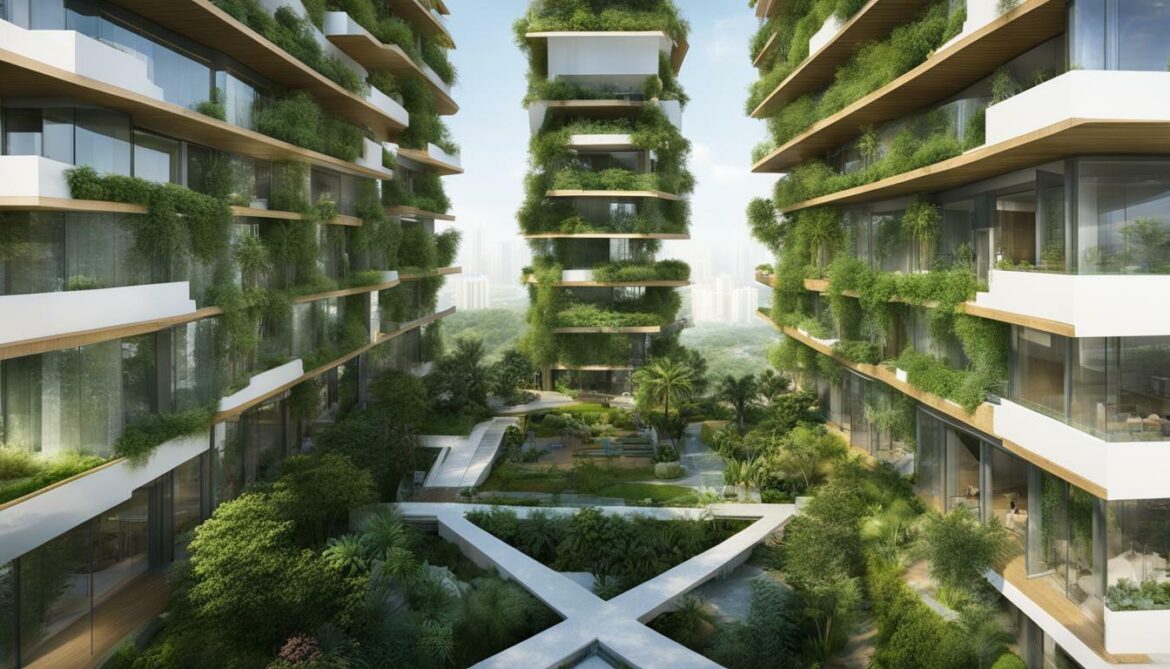
Incentives and Benefits of Green Buildings in Bahrain
For residents and businesses interested in adopting sustainable practices, Bahrain offers a range of incentives and support. Owners of green buildings receive financial benefits, such as reduced utility rates and tax benefits, from the government. These incentives aim to encourage individuals and businesses to adopt green building solutions in their construction projects.
In addition to financial incentives, Bahrain offers various training programs and workshops to educate individuals and professionals on the benefits and techniques of green building. These programs cover topics such as renewable energy, energy efficiency, water conservation, and waste management.
Green buildings not only benefit the environment, but they also enhance the quality of life for their occupants. By promoting the use of natural light, improving air quality, and promoting a sense of well-being, green buildings contribute to better health and productivity. Those who choose to live or work in green buildings can help contribute to a more sustainable future while enjoying a better quality of life.
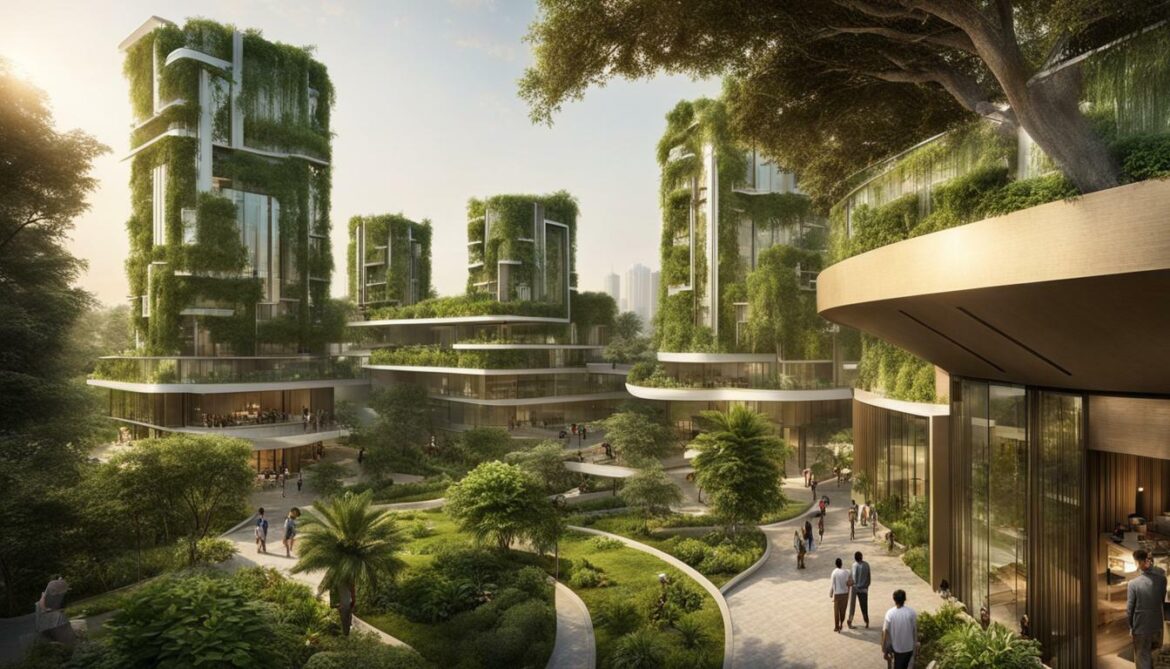
In conclusion, Bahrain’s commitment to sustainable living through green building practices has led to several initiatives and organizations aimed at promoting eco-friendly architecture and sustainable construction. With government policies, supportive organizations, and incentives, Bahrain is becoming a leading example of green building in the region. By adopting green building principles, Bahrain is not only reducing its environmental impact but also creating a healthier, more vibrant community for its residents.
Explore Bahrain Green Building: Your Guide to Sustainable Living
Bahrain, a small island nation in the Arabian Gulf, is making significant strides towards promoting sustainable living through green building practices. With its commitment to environmentally friendly development, Bahrain is becoming a model for other countries in the region.
Green building is the practice of designing and constructing buildings that are energy-efficient, environmentally responsible, and promote the well-being of its occupants. By incorporating sustainable design principles, such as using renewable materials, conserving energy and water, and reducing waste, green buildings aim to minimize their impact on the environment.
Prominent Green Building Projects in Bahrain
One of Bahrain’s notable green building initiatives is the Bahrain World Trade Center (BWTC), a landmark skyscraper that stands as a testament to the country’s commitment to sustainability. The BWTC incorporates wind turbines within its structure, harnessing the power of the wind to generate clean energy. This innovative design element has made the BWTC the world’s first skyscraper to incorporate wind turbines.
Another prominent example of green building in Bahrain is the Bahrain Bay Development. This ambitious waterfront project aims to create a sustainable urban community by integrating green spaces, pedestrian-friendly infrastructure, and energy-efficient buildings. The development’s master plan includes the use of solar panels, rainwater harvesting systems, and innovative waste management practices to reduce its environmental impact.
Supporting Organizations and Policies for Green Building in Bahrain
To support the growth of green building in Bahrain, several organizations have been established to promote sustainable practices and provide guidance to developers and architects. One such organization is the Bahrain Green Building Council (BGBC). The BGBC works to raise awareness about green building principles, offers training and certification programs, and advocates for sustainable policies at the national level.
In addition to these large-scale projects and organizations, Bahrain has also implemented various policies and regulations to encourage sustainable building practices. The government has introduced the Estidama Sustainable Building Rating System, which provides guidelines and standards for developers to follow in order to achieve green building certification. This rating system evaluates various aspects of a building’s design, construction, and operation, such as energy efficiency, water conservation, indoor environmental quality, and waste management.
Incentives and Benefits of Green Buildings in Bahrain
For residents and businesses interested in adopting sustainable practices, Bahrain offers a range of incentives and support. The government provides financial incentives for owners of green buildings, such as reduced utility rates and tax benefits. Additionally, training programs and workshops are available to educate individuals and professionals about the benefits and techniques of green building.
Living in a green building not only benefits the environment but also enhances the quality of life for its occupants. Green buildings are designed to maximize natural light, improve air quality, and promote a sense of well-being. By choosing to live or work in a green building, individuals can contribute to a more sustainable future while enjoying improved comfort and productivity.
Conclusion
In conclusion, Bahrain is taking significant strides towards promoting sustainable living through green building practices. With its innovative projects, supportive organizations, and government policies, Bahrain is becoming a leading example of green building in the region. By adopting green building principles, Bahrain is not only reducing its environmental impact but also creating a healthier, more vibrant community for its residents. So, if you’re interested in sustainable living, explore Bahrain’s green building initiatives and be a part of the movement towards a greener future.
FAQ
Q: What is green building?
A: Green building is the practice of designing and constructing buildings that are energy-efficient, environmentally responsible, and promote the well-being of its occupants.
Q: What are some notable green building projects in Bahrain?
A: Some notable green building projects in Bahrain include the Bahrain World Trade Center, which incorporates wind turbines for clean energy, and the Bahrain Bay Development, a sustainable urban community with energy-efficient buildings and green spaces.
Q: Are there any organizations supporting green building in Bahrain?
A: Yes, the Bahrain Green Building Council (BGBC) is an organization that promotes green building principles, offers training and certification programs, and advocates for sustainable policies at the national level.
Q: What incentives are available for green building in Bahrain?
A: The government of Bahrain offers financial incentives for owners of green buildings, such as reduced utility rates and tax benefits. Training programs and workshops are also available to educate individuals and professionals about the benefits and techniques of green building.
Q: How do green buildings benefit occupants?
A: Green buildings maximize natural light, improve air quality, and promote a sense of well-being, enhancing the comfort and productivity of occupants.
Q: Why is sustainable living important in Bahrain?
A: Sustainable living is important in Bahrain to reduce environmental impact, create a healthier community, and contribute to a greener future.


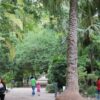
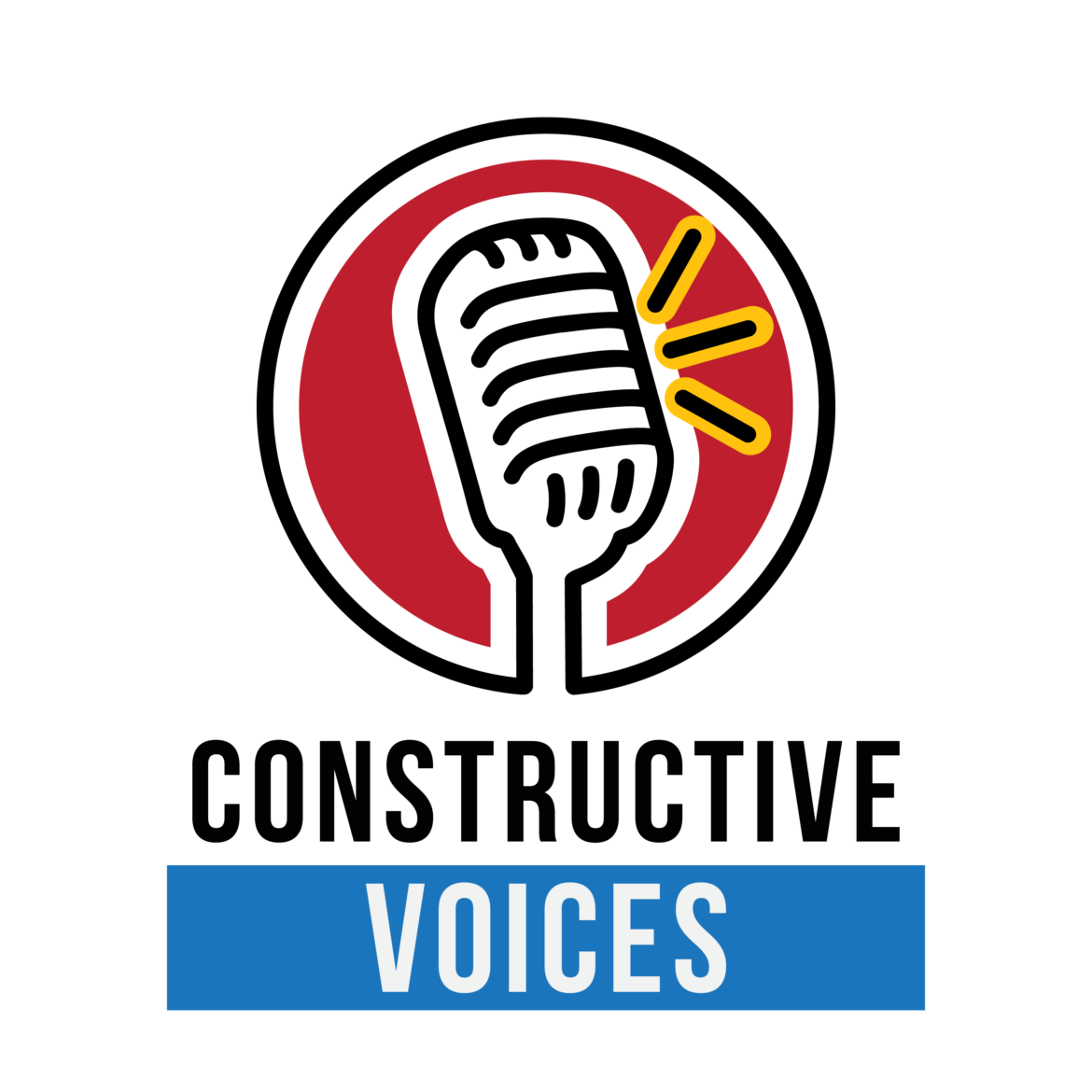


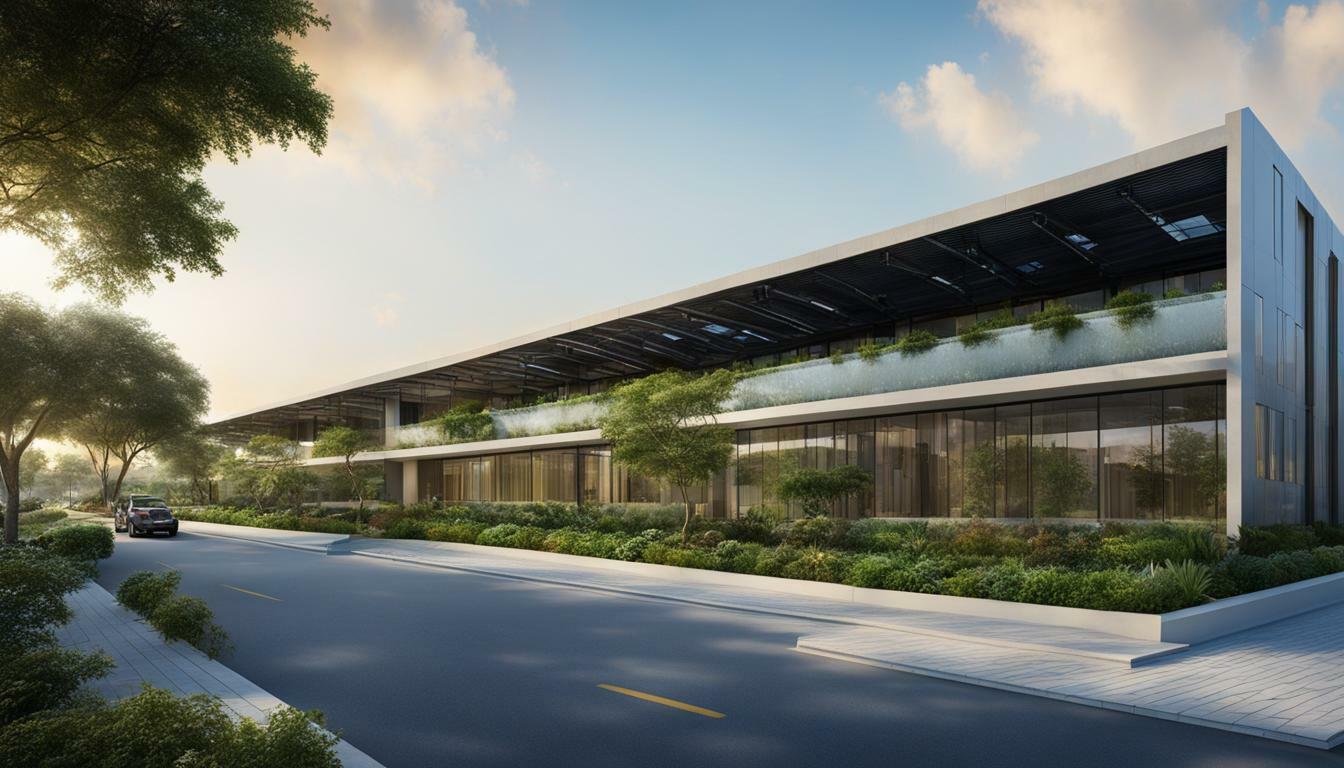




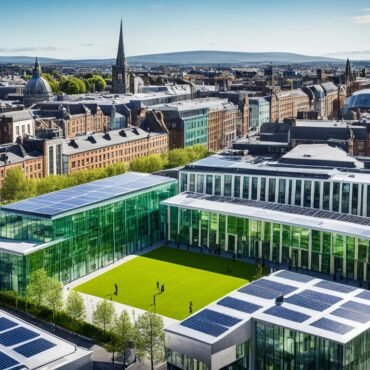
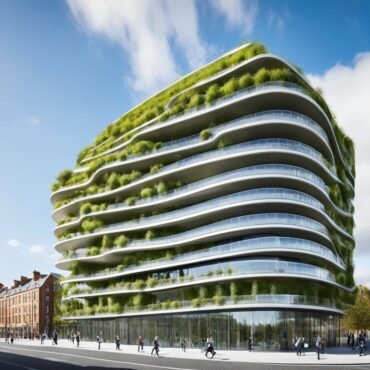




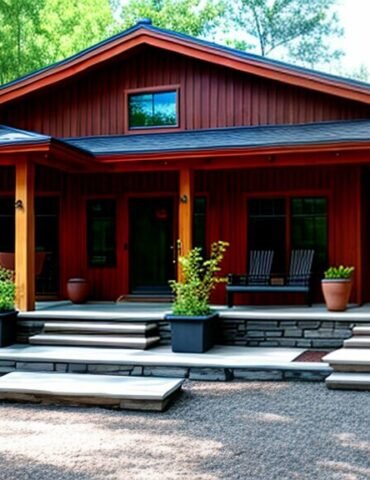

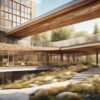
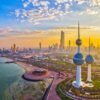

Post comments (0)